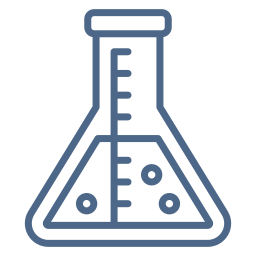Brominated dibenzofurans
Our range of brominated diobenzo furans (PBDFs) standards for your environmental analyses.Our analytical standards for brominated furans (PBDFs) are prepared by Wellington Laboratories, the world benchmark for analytical standards.
They are available as individual native or mass-labelled solutions.
Home | Wellington AnalyticalStandards | HFRs and Related Compounds | Brominated furans analytical standards (PBDFs)
Our individual brominated furans standards
Wellington Laboratories’ PBDF solutions are designed to guarantee optimum analytical precision. They are manufactured according to rigorous protocols and accompanied by detailed certificates of analysis.
- Highly characterised standards to guarantee precision and reproducibility.
- Compatible with various analytical methods, including LC-MS/MS.
- Allows specific quantification using labelled isotopes.
All our CRMs are available in 1.2 mL in toluene, and are ISO 9001, ISO/IEC 17025, and ISO 17034 certified.
Native Brominated Dibenzofurans (PBDFs) individual solutions
Native bromo/chloro Dibenzofurans individual solutions
13C12-labelled individual solutions
Our commitments
Haute précision
Ces solutions innovantes permettent une identification et une quantification fiables des composés cibles grâce à leur pureté exceptionnelle et à leur compatibilité optimale avec les protocoles analytiques.
Conçus pour répondre aux exigences rigoureuses des laboratoires, nos standards de référence offrent une performance analytique inégalée, assurant ainsi des résultats reproductibles et conformes aux standards réglementaires les plus stricts. Avec les produits Wellington, vous bénéficiez d’outils de référence pour mener des analyses environnementales de pointe.
Fiabilité certifiée
Chaque lot est accompagné d’un certificat d’analyse détaillé, attestant de la qualité et de la pureté des composés.
Livraison rapide
France et Belgique.
Do you have a question? Contact us using the contact form. We will be delighted to advise you.
Brominated dibenzofurans (PBDF) individual solutions
Furanes bromés
Solutions individuelles de PBDFs natifs
1.2 mL, toluène
| Catalogue No. | Description | Unit | CAS |
|---|---|---|---|
| BDF-4 | 4-Bromodibenzofuran | 1.2 mL x 50ug/mL | 89827-45-2 |
| BDF-24 | 2,4-Dibromodibenzofuran | 1.2 mL x 50ug/mL | 133953-36-3 |
| BDF-28 | 2,8-Dibromodibenzofuran | 1.2 mL x 50ug/mL | 10016-52-1 |
| BDF-138 | 1,3,8-Tribromodibenzofuran | 1.2 mL x 50ug/mL | 142408-19-3 |
| BDF-234 | 2,3,4-Tribromodibenzofuran | 1.2 mL x 50ug/mL | N/A |
| BDF-238 | 2,3,8-Tribromodibenzofuran | 1.2 mL x 50ug/mL | 84761-82-0 |
| BDF-247 | 2,4,7-Tribromodibenzofuran | 1.2 mL x 50ug/mL | 617707-53-6 |
| BDF-1278 | 1,2,7,8-Tetrabromodibenzofuran | 1.2 mL x 50ug/mL | 84761-80-8 |
| BDF-2378 | 2,3,7,8-Tetrabromodibenzofuran | 1.2 mL x 50ug/mL | 67733-57-7 |
| BDF-12378 | 1,2,3,7,8-Pentabromodibenzofuran | 1.2 mL x 50ug/mL | 107555-93-1 |
| BDF-23478 | 2,3,4,7,8-Pentabromodibenzofuran | 1.2 mL x 50ug/mL | 131166-92-2 |
| BDF-1234678 | 1,2,3,4,6,7,8-Heptabromodibenzofuran | 1.2 mL x 25ug/mL | 107555-95-3 |
| BDF-12346789 | Octabromodibenzofuran | 1.2 mL x 25ug/mL | 103582-29-2 |
N/A: not applicable
Bromo/chloro dibenzofurans individual solutions
Furanes bromo/chloro natifs
Solutions individuelles de Dibenzofuranes bromo/chloro natifs
1.2 mL x 50ug/mL, toluène
| Catalogue No. | Description | CAS |
|---|---|---|
| 8-B-23-CDF | 8-Bromo-2,3-dichlorodibenzofuran | 103124-75-0 |
| 3-B-278-CDF | 3-Bromo-2,7,8-trichlorodibenzofuran | 131166-87-5 |
| 8-B-234-CDF | 8-Bromo-2,3,4-trichlorodibenzofuran | 103124-72-7 |
| 4-B-2378-CDF | 4-Bromo-2,3,7,8-tetrachlorodibenzofuran | 115656-08-1 |
| 12-B-78-CDF | 1,2-Dibromo-7,8-dichlorodibenzofuran | N/A |
| 23-B-78-CDF | 2,3-Dibromo-7,8-dichlorodibenzofuran | N/A |
| 13-B-278-CDF | 1,3-Dibromo-2,7,8-trichlorodibenzofuran | N/A |
N/A: not applicable
Furanes bromo/chloro marqués
Solutions individuelles de Dibenzofuranes bromo/chloro marquées 13C
1.2 mL x 50ug/mL, toluène
| Catalogue No. | Description |
|---|---|
| M8-B-23-CDF | 8-Bromo-2,3-dichloro(13C12)dibenzofuran |
| M3-B-278-CDF | 3-Bromo-2,7,8-trichloro(13C12)dibenzofuran |
| M4-B-2378-CDF | 4-Bromo-2,3,7,8-tetrachloro(13C12)dibenzofuran |
| M23-B-78-CDF | 2,3-Dibromo-7,8-dichloro(13C12)dibenzofuran |
| M13-B-278-CDF | 1,3-Dibromo-2,7,8-trichloro(13C12)dibenzofuran |
Do you have a question? Contact us using the contact form. We will be delighted to advise you.

PFAS, per- polyfluoroalkyl Substances

Halogenated flame retardants, HFRs and other compounds

Polychlorinated biphenyls, PCBs

Polybrominated diphenyl ethers, PBDEs Polybrominated biphenyls, PBBs

Dioxins, Furans, PCDDs, PCDFs

Organochlorine Pesticides, OCP

Certified reference materials

Other reagents
Find out more about brominated furans (PBDF)
Characteristics and Risks
Brominated dibenzofurans are chemical compounds derived from dibenzofuran, in which certain hydrogen atoms are replaced by bromine atoms. Brominated/chlorinated furans, also known as mixed halogenated furans, are chemical compounds in which the hydrogen atoms in furan are replaced by bromine and chlorine atoms.
They are mainly used as flame retardants in various consumer products.
However, they are also persistent organic pollutants (POPs) and can be hazardous to health and the environment. The risks associated with PBDFs include their potential toxicity, their ability to bioaccumulate in living organisms, and their persistence in the environment. They can be formed during combustion or thermal degradation of materials containing brominated flame retardants.
Regulation and Supervision
PBDFs are subject to strict regulations because of their potential toxicity. In France, INERIS (Institut national de l’environnement industriel et des risques) is conducting studies to characterise emissions of brominated dioxins and furans, particularly from hazardous waste incinerators. The Stockholm Convention on Persistent Organic Pollutants also includes measures to control and reduce emissions of these compounds. Regulations aim to limit their presence in the environment and protect public health.
Do you need laboratory equipment and/or consumables?
Feel free to contact us at any time.
